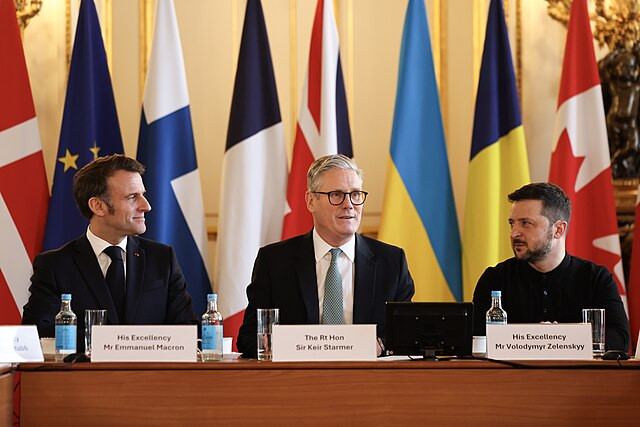European leaders have reaffirmed their support for Ukrainian President Volodymyr Zelensky in the wake of a tense White House meeting that underscored growing divisions within the Western alliance. British Prime Minister Keir Starmer led a summit in London over the weekend, gathering European leaders to craft a peace plan for Ukraine, even as U.S. officials hinted that Zelensky may need to step aside for negotiations with Russia to move forward.
Trump's national security adviser, Mike Waltz, told CNN's State of the Union on Sunday that the administration questions whether Zelensky is committed to ending the war. "We need a leader that can deal with us, eventually deal with the Russians, and end this war," Waltz said. "If it becomes apparent that President Zelensky's either personal motivations or political motivations are divergent from ending the fighting in his country, then I think we have a real issue on our hands."
Trump's public criticism of Zelensky has emboldened Russia, with Kremlin spokesman Dmitry Peskov stating on Monday that "someone must force Zelensky to change his position" and "make Zelensky want peace." The statement mirrored Trump administration rhetoric that has suggested Ukraine may need to make territorial concessions, a stance that has alarmed European leaders.
At the London summit, Starmer emphasized Europe's responsibility to take the lead on Ukraine's defense. "Every nation must contribute to that in the best way that it can, bringing different capabilities and support to the table, but all taking responsibility to act, all stepping up their own share of the burden," he said.
The summit, attended by leaders from Germany, France, Italy, and several other European nations, resulted in a four-part plan that includes continued military aid to Ukraine, economic pressure on Russia, and diplomatic efforts to secure a peace agreement that guarantees Ukraine's sovereignty. A "coalition of the willing" was also announced, with Starmer stating that the U.K. is prepared to back the plan "with boots on the ground and planes in the air, together with others."
French President Emmanuel Macron proposed a limited truce lasting one month to facilitate negotiations, though Zelensky has not publicly commented on whether he supports the plan. European Commission President Ursula von der Leyen, meanwhile, called for turning Ukraine into a "steel porcupine that is indigestible for potential invaders," emphasizing the need for long-term military support.
The contrast between European and American approaches to Ukraine became particularly stark after Trump's meeting with Zelensky last week. The confrontation in the Oval Office, in which Trump and Vice President JD Vance berated the Ukrainian leader before abruptly ending the meeting, was widely viewed as a diplomatic disaster. Following the incident, House Speaker Mike Johnson suggested Zelensky should either "come to his senses and come back to the table in gratitude, or someone else needs to lead the country to do that."
Republican Senator Lindsey Graham, who has previously been a vocal supporter of Ukraine, also shifted his stance. "I don't know if we can ever do business with Zelensky again," he said.
Starmer, seeking to repair transatlantic ties, dismissed concerns that the U.S. is an unreliable ally. "There are no two countries as closely aligned as our two countries, and our defense, our security and intelligence is intertwined in a way no two other countries are," he said. However, the lack of a U.S. security guarantee for Ukraine remains a major gap in European-led peace efforts.
The summit in London marked a significant shift in Europe's stance, with leaders signaling their willingness to take greater responsibility for regional security. Starmer pledged to increase the U.K.'s defense budget to 2.5% of GDP by 2027, while other European nations, including Italy and Germany, are expected to follow suit.
Despite growing European unity, questions remain over whether Trump will support the continent's efforts. His administration has yet to endorse Starmer and Macron's proposals, and Trump himself has maintained that any peace agreement must include direct negotiations with Russian President Vladimir Putin.
Meanwhile, European officials are bracing for continued uncertainty. Italian Prime Minister Giorgia Meloni, who maintains close ties with both Trump and Zelensky, warned that "dividing the West would be disastrous for everyone" and called for a unified approach.




